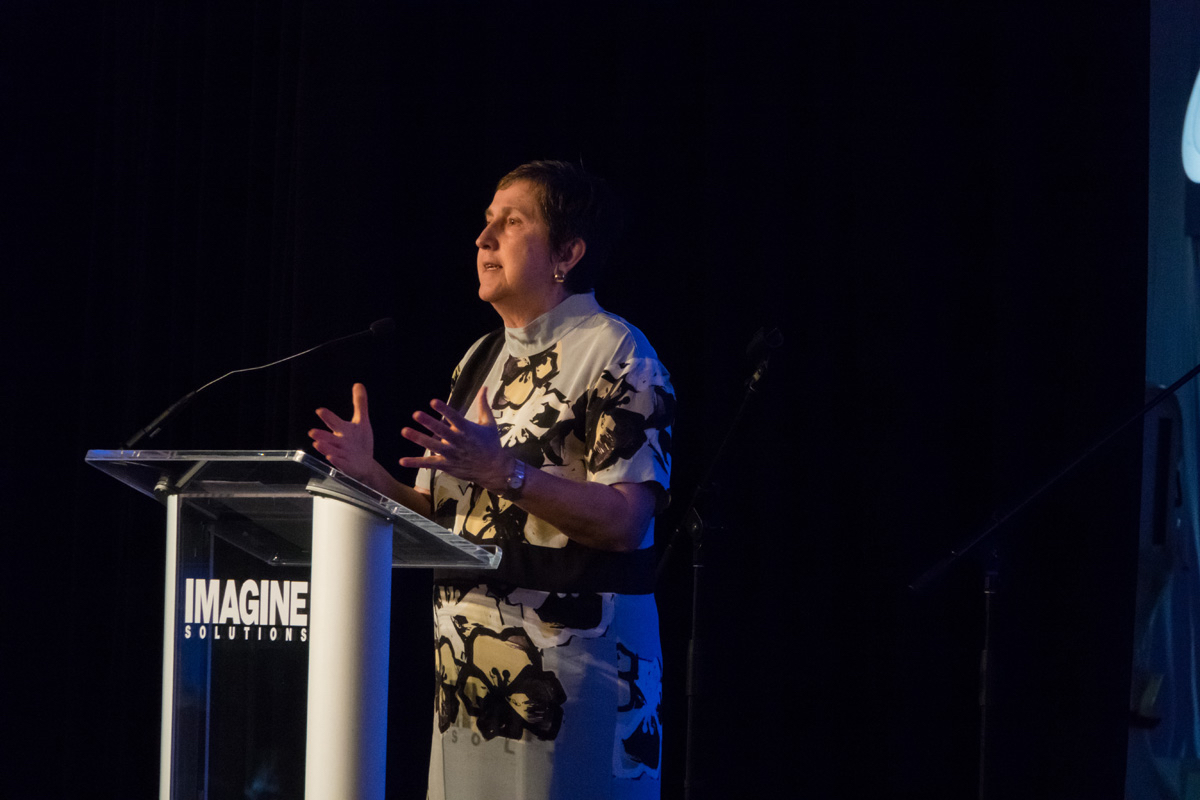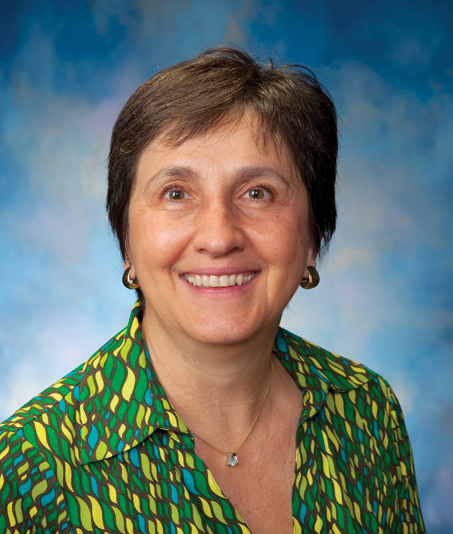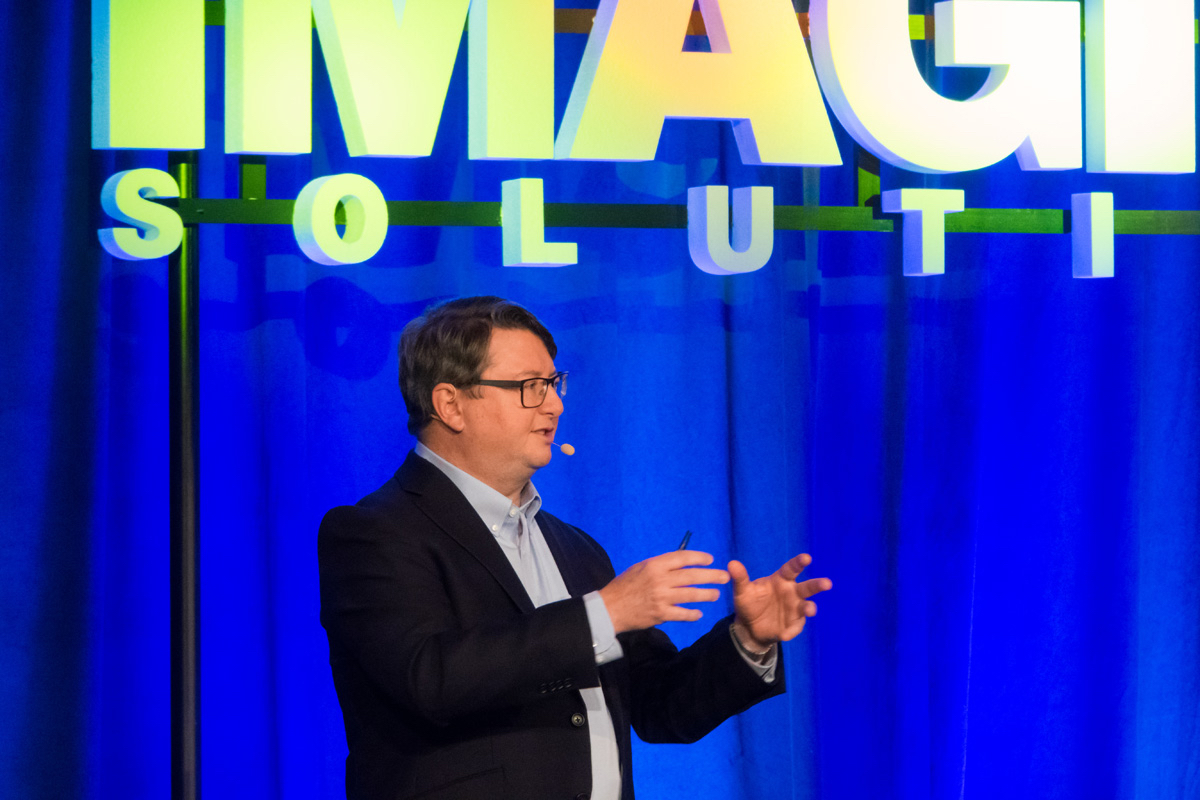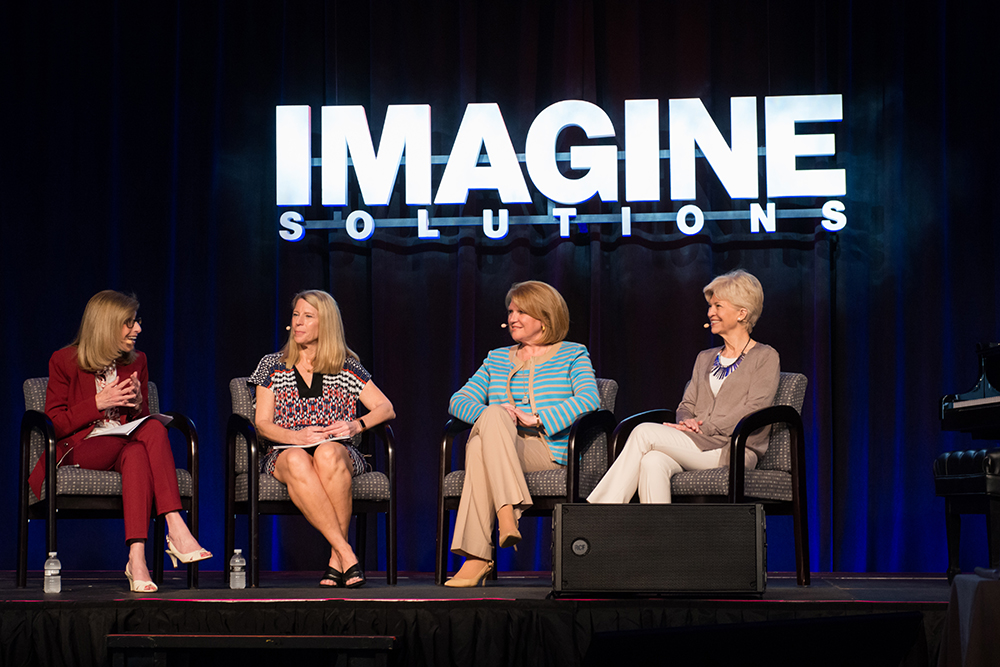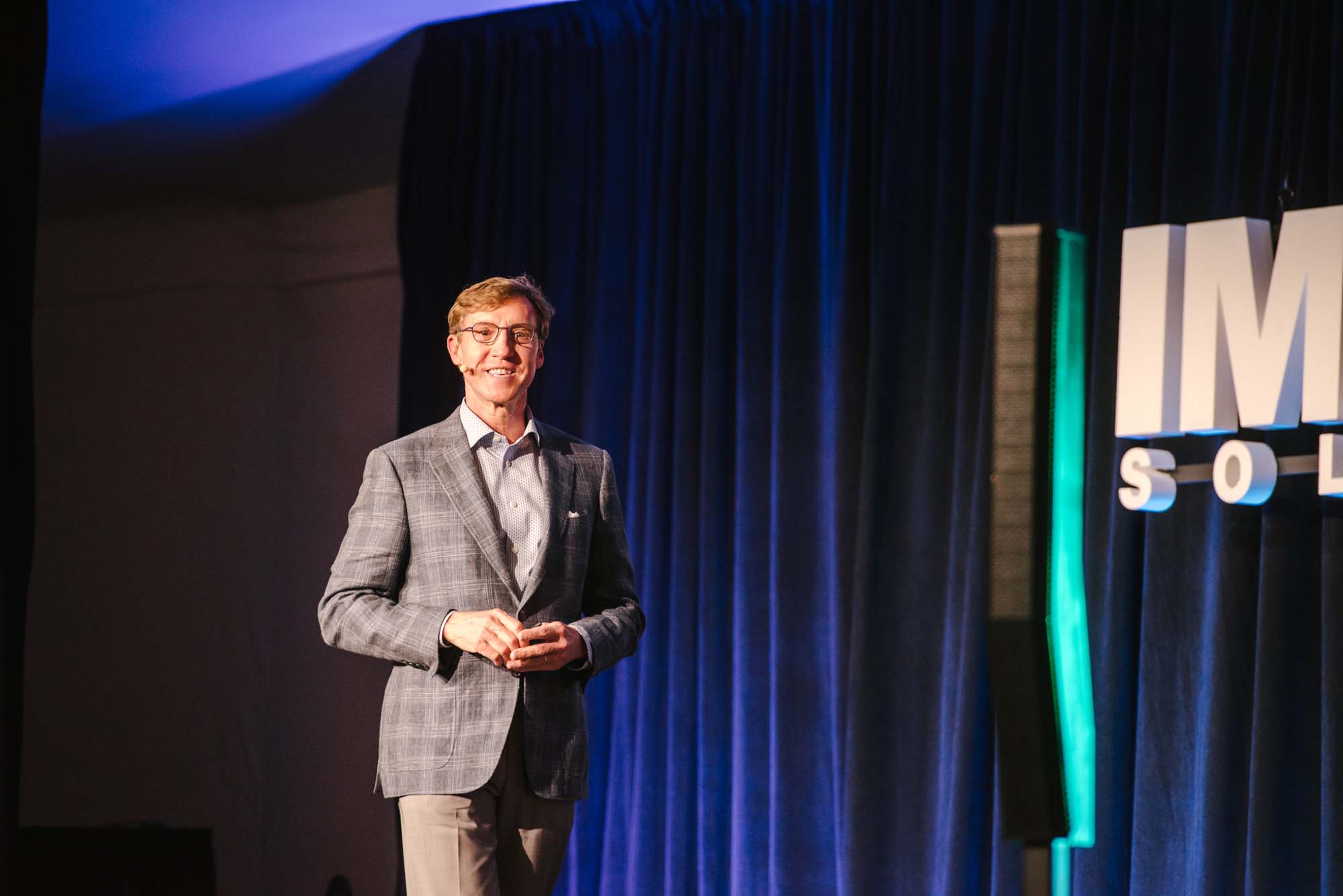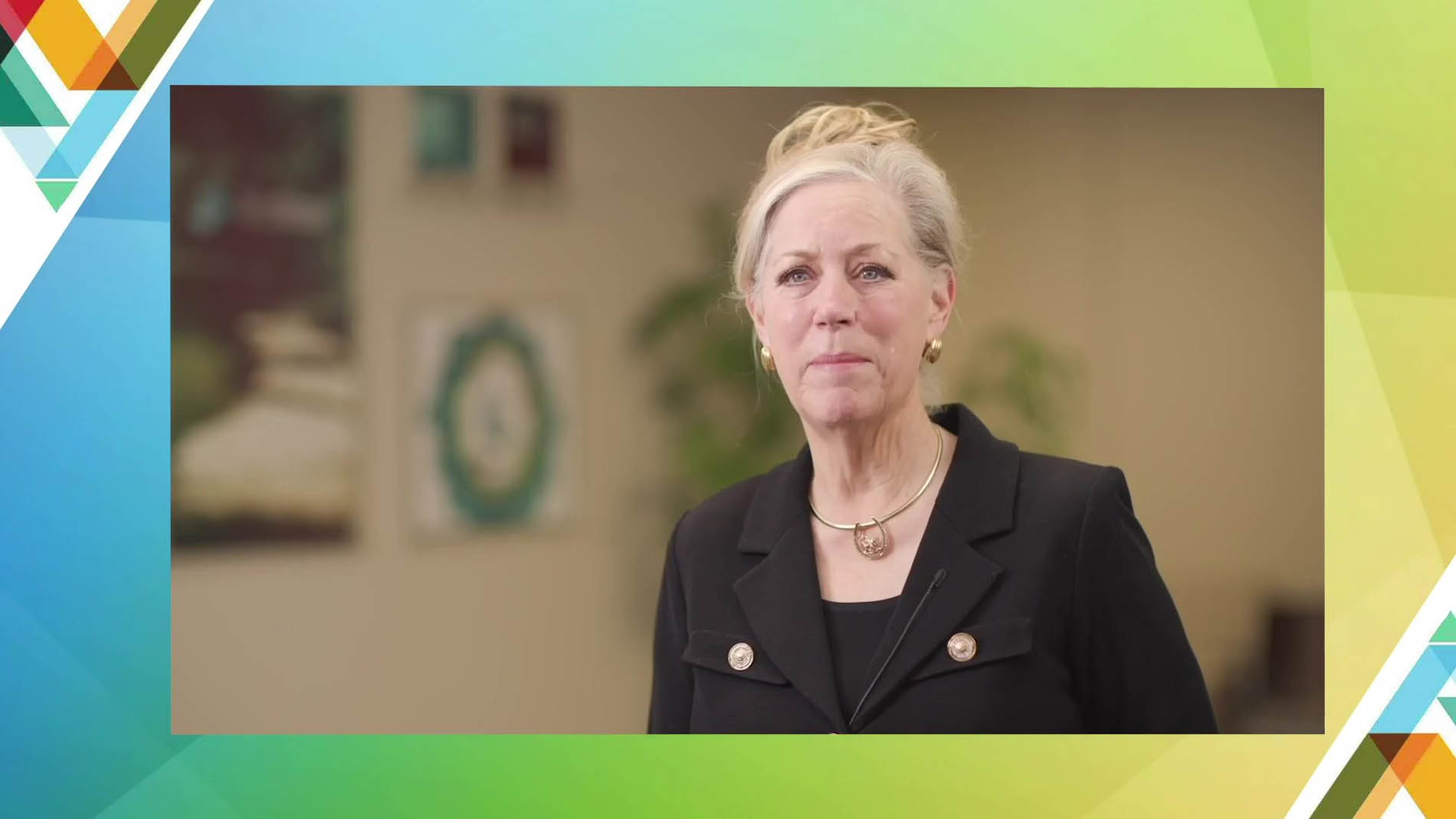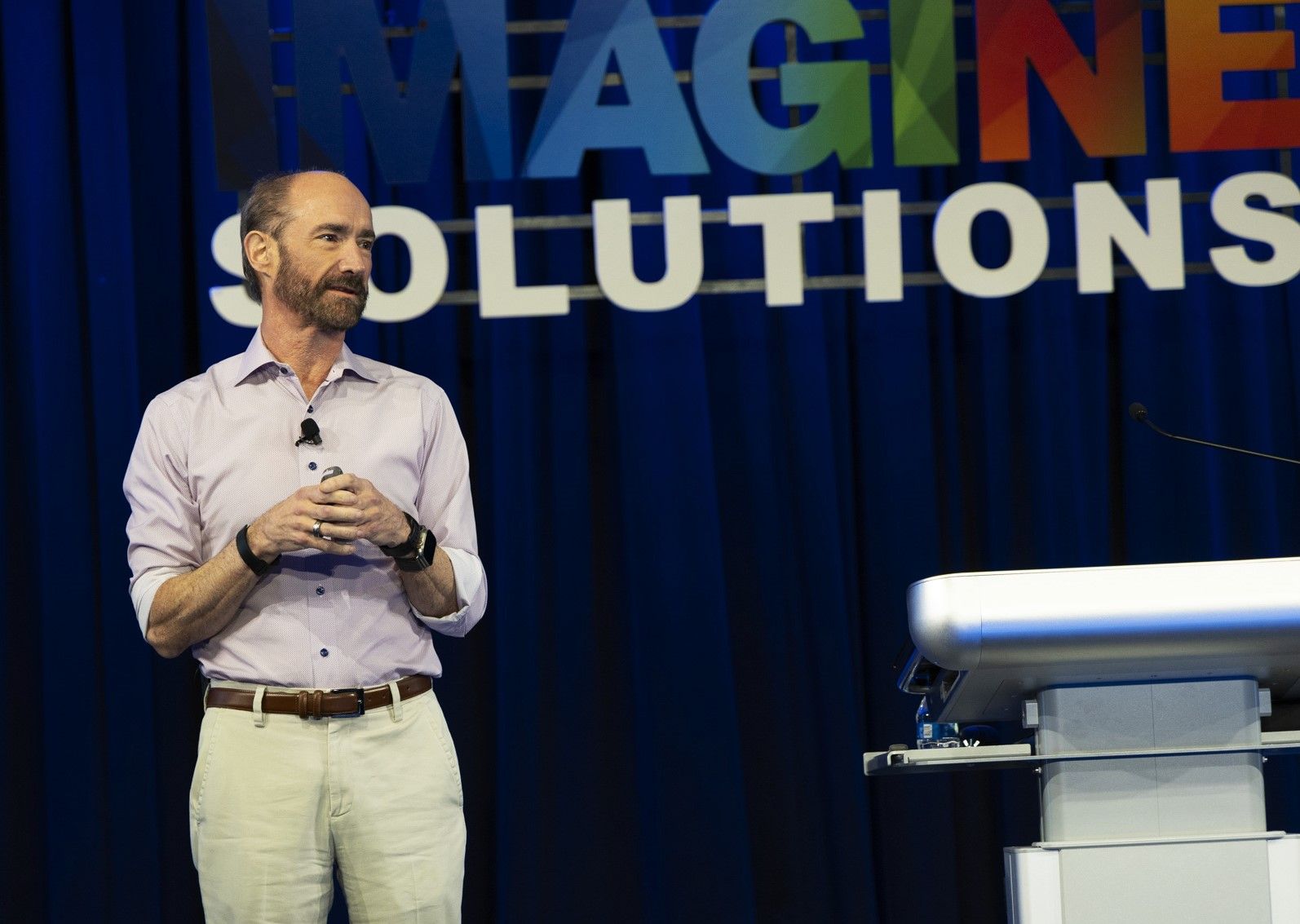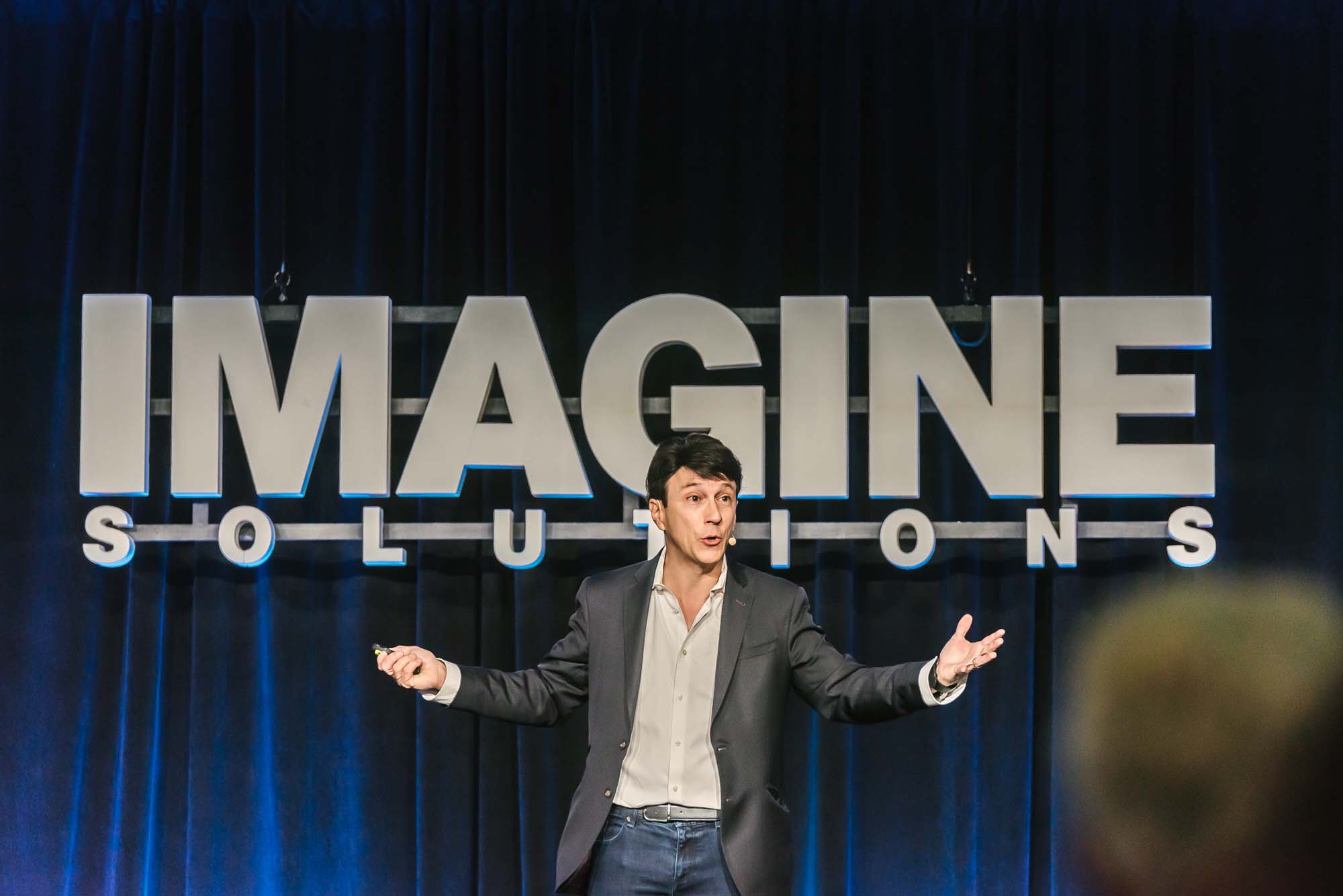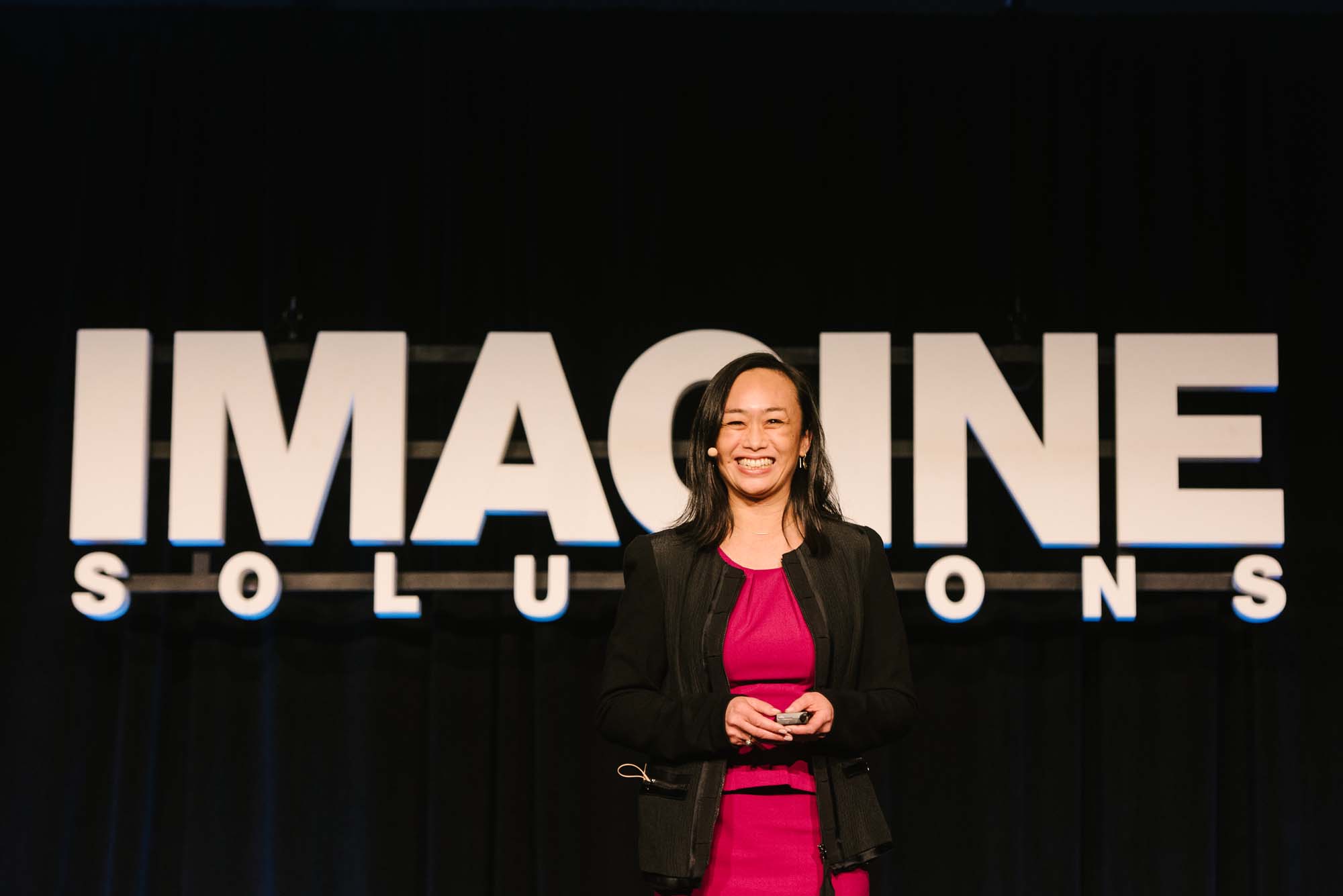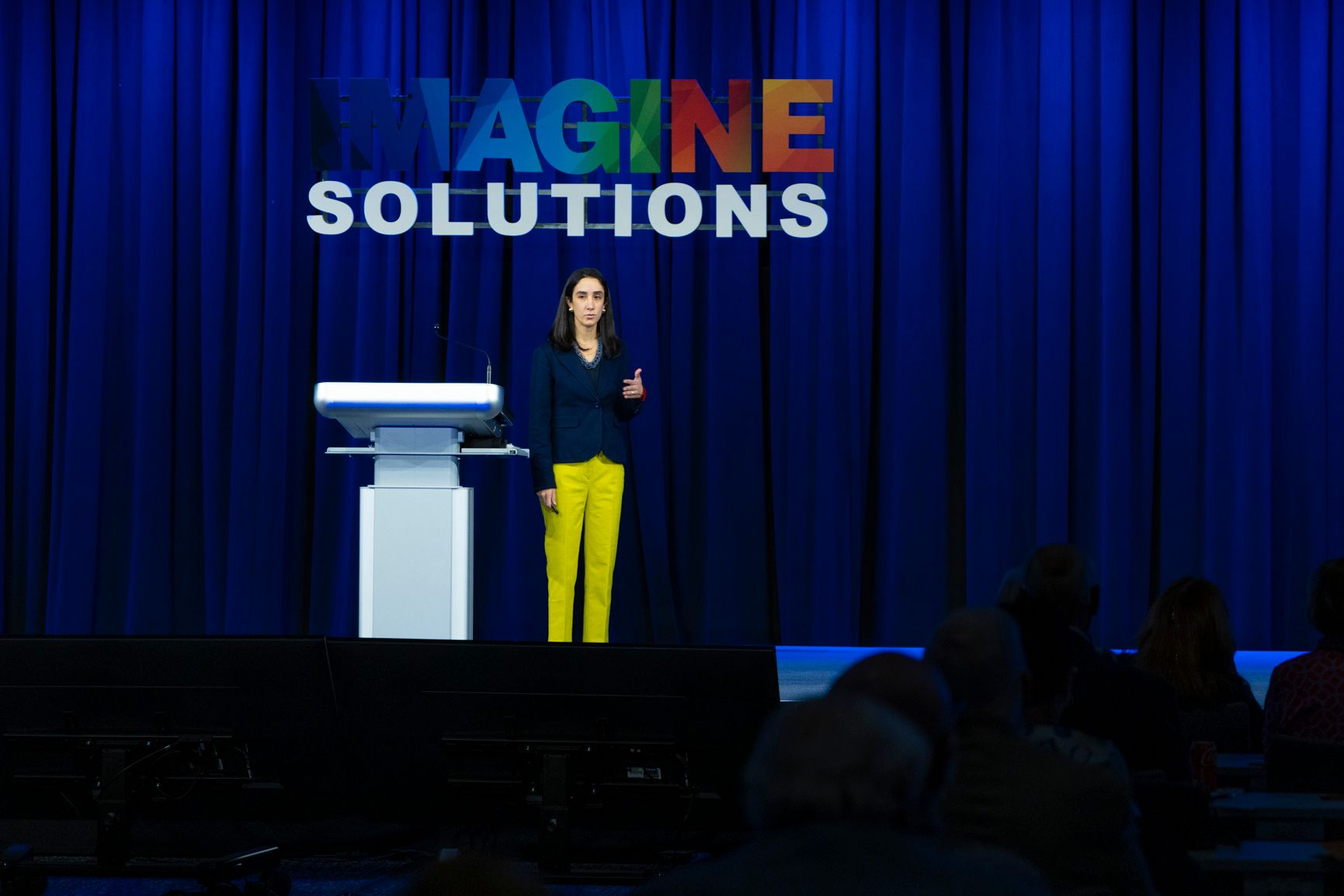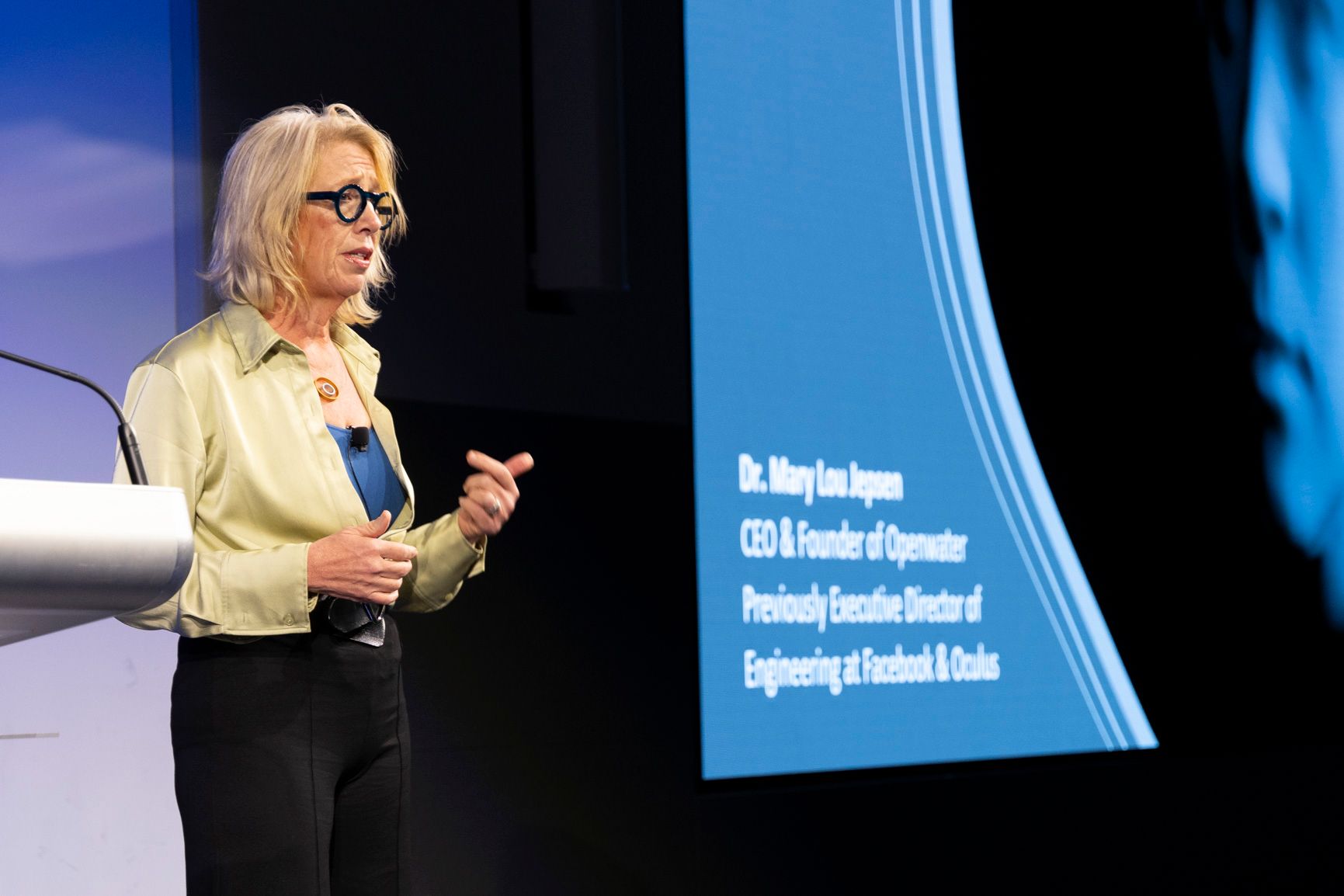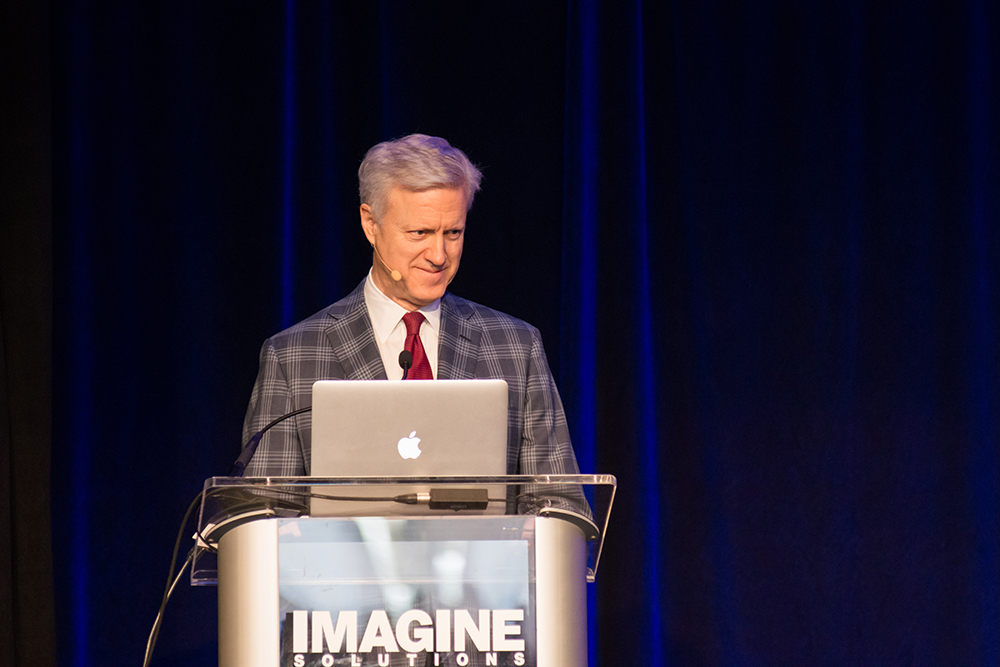An Immune-Based Response to Cancer Cells
Dr. Olivera Finn joins Imagine Solutions to talk about her area of expertise, immunology and the immune system in the context of cancer research. Dr. Finn reports the most common questions she gets are, one, are we close to a cure, and two, what is taking so long. Her response is always the same: You cannot win the war if you don’t know your enemy. So the biggest priority is to get to know cancer, deeply and comprehensively. With that knowledge come new tactics and victories. Each cancer acts differently, requiring unique therapies. The immune sytem is our front line of defense, sensing which cells are safely self and which are dangerous. Our goal is to help the immune system do its job better.
00.00
dr. Ola Flynn of the University of Pennsylvania versus its Berg School of Medicine it's got to tell us a little bit about the immune system in the immunology she's the founding chair of the department of immunology at the University of Pittsburgh thank you very much I've had a wonderful morning it's a wonderful meeting it's my first time here and maybe I'll be invited again I certainly would like to be but on the way on the way here yesterday on the plane my seat mate I think I should have made him ask me because I was so excited that I was coming here and and so he said also I you visiting somebody I said no no there's this wonderful conference imagine solutions and and I'm going to be speaking at the conference and he says also what are you going to talk about I said well I do cancer research and immediately like everybody else to
01.03
whom I've ever said I do cancer research my seatmate wanted to know are we close to a cure and and then immediately another question what's been taking so long those are questions I get all the time and I've been in this business a long time but I always give the same answer and it's a correct answer it's a true answer and the answer is as you know always said this in an introduction that that we've been since 1971 December 1971 when Nixon signed the National Cancer Act think is talking about the war on cancer and everybody knows this commitment as the war on cancer and I tell everybody who asked me you cannot win the war if you don't know your enemy so for the last 40-plus years this is what we've been doing we've been trying to know to understand to get to know the details of what our enemy knows and how
02.00
it fights us back and fortified with that knowledge which is an incredible knowledge that we've acquired over this since since then fortified with that knowledge we have been able to develop new weapons for the battles that we are beginning to win and and with these weapons will learn how to use them how to use them specifically for every patient because we have learned as again was mentioned before that every cancer is a separate enemy to us and we have been very successful and we should really celebrate that success in last year 2017 FDA approved 45 new anti-cancer drugs every one of them better that one with what we have had up until now better more effective less toxic and and each one of those drugs is based on the scientific experiment that we have performed and gained the knowledge of what those drugs can do so
03.01
as I said the scientific discoveries have led us to this point where a lot of battles have been won and also we have as we've learned we have been writing battle manuals the manuals that can be sent to the trenches to the doctors who take care of cancer patients but all these years there has been one battle manual written a long time ago eons ago that we didn't know it existed and even if we suspected that it existed we wouldn't have known how to read it without acquiring additional knowledge and that is the battle manual written by our own defense system our own body's defense army our immune system this is the defense system that on a daily basis surveys our bodies for intruders and they can be viruses and bacteria from the outside but they can also be intruders from inside cells gone rogue
04.01
but for a long time we didn't know that we began to study the immune system it was a very young science in the seventies immunology was a very young science we were just learning what the immune system can do and we were learning a lot from transplant rejections so the fact that we couldn't transplant organs easily from one person to another and we assumed that the immune system was there to tell what is self versus non-self meaning self the cells that are generated by your own body versus cells that can come from the outside such as virus or bacterium so as long as we thought about the immune system as self versus non-self discrimination system we couldn't even imagine that it would then have anything to do with cancer because no matter what the can sir is a self your own cell in your own body but then the immune system is much smarter than we were and we learn very quickly that this is not what what is interesting to the immune system but is
05.00
the interesting to the immune system is not what itself and what is foreign but what is dangerous and as for me pointed out cancer is a genetic disease cancer is generated through a mutation and the mutations change proteins in the cell they changed the way the cell makes products and secretes in today it's into its environment it changes the metabolism of the cell it changes how that cell can proliferate or not proliferate it changes how the cell senses its neighbours or as a cancer does not does not sense its neighbors and can over grow an organ and sooner or later those mutations and those abnormal proteins and abnormal products that the cell makes make that cell look very foreign it is not self anymore and furthermore it is obviously dangerous and it signals this to the immune system to come and eliminate it so because of that when we figured that out it became possible then
06.01
to say but let's then find out what can the immune system do on its own and whether we can help it do it better in the cases where it fails and the cancer grows so I belong to a generation of immunologists who decided in the late 70s early eighties to challenge this assumption that immune system has nothing to do with cancer and to simply ask the the fact that a genetic disease like cancer is not growing in a dish but it's growing in a host how does the host respond to it and as I said how can we make that response better so we started to look at differences between normal cells and cancer cells to identify molecules that would be of interest to the immune system I trained at Stanford for my PhD with that cancer radiologist he used radiology to oncology to to to treat cancer I did my postdoc at the same institution with a cancer oncologist but when I started my lab in 1982 what they do
07.01
University I started a cancer immunology lab the bias against the immune system having anything to do with cancer was so strong that I was told numerous times that this was going to be a career suicide well I'm here obviously did not kill me on the contrary thank you on the contrary in 1989 we published the first ever discovered human tumor antigen that the immune system can use to recognize a tumor cell and eliminated tumor cell they were this was a first of many hundreds of such molecules that were discovered over the period of the next decade and so this was a decade of the tumor antigen discovery and this was the decade for cancer immunologists to imagine solutions and what we imagined was that these molecules can be then made into vaccines and we could vaccinate cancer patients boost immune response and which would lead to tumor
08.01
ejection so this is what we imagined we imagined a cancer is diagnosed the surgery removes the cancer we know that the cancer can recur because they're small metastases around the body that are not yet obvious but in three four or five years they may come regrow and come back but we thought we would have a window of opportunity we would vaccinate post surgery and strengthen the immune response that would go and find these metastatic sites eliminate the cancer because now it's a small tumor burden that they can handle and that would basically be a cure so the therapeutic cancer vaccines we imagine would be cost effective easy non-toxic cure for cancer we didn't come even close to that it's been it was a long road in December 9 1993 I had just moved on your city of Pittsburgh we actually started the first in the world again the first in the world trial of a cancer therapeutic cancer vaccine based on this abnormal
09.01
self molecule and we ran many trials like that and most of my colleagues who were chemistry monologist at the time with their own antigens set up therapeutic cancer vaccine trials there were antigens discovered for every human tumor and they were vaccines developed for every human tumor in the hopes were high and the results were disappointing we had some exceptional results that kept us going but we didn't have any cures we prolonged the disease time to disease recurrence we stabilized the disease we make people feel better for a while but we didn't have a cure but this effort which is an effort on the band and that cost not only the scientists time and money but the patient's willingness and the families etc this effort did not go to waste because from this effort we got such an incredible insight into what a page the immune system in a patient with the cancer is like and what we learned was that it was
10.02
incredibly heavily immunosuppressed we learned that one of the tricks that the cancer can play is to immunosuppressed to suppress every effector molecule every effector cell of the immune system and there are multiple ways it does that I don't have the time to tell you but they are all incredibly interesting so from these failed trials this is what we learned and that change thinks exactly the everybody's thought about how we should then approach immunotherapy of cancer we changed our focus from treating the cancer to treating the patient's immune system forget about the cancer let's help the immune system function better and the immune system will then take care of cancer so we developed such therapeutics such drugs we develop antibodies that blocked molecules on cancer cells they can suppress immune cells and it can prevent them from killing the cancer and this molecule some of you know them some
11.02
of you have taken them as therapies they're called ctla4 pd1 PDL one and the antibodies or the drugs that we're calling them now there have been developed a called year voy AB de veau que true that you even see commercials on television advertising these drugs while they're difficult to pronounce and difficult to remember one thing you should all remember they are immunotherapy and they are based on over 30 almost 40 years of very hard work of cancer immunologist so give them the credit by not calling them drugs but immunotherapy oryx the treatment treatment with one of these antibodies as you probably all know is responsible for Jimmy Carter announcing that a couple of years ago that he was completely free of cancer of melanoma that had metastasized to his brain and was going to kill him within months but within months he was making an announcement that he was cancer-free completely cancer-free he is 93 I just
12.00
read that he was invited to give a commencement speech at Liberty University in May he's in perfect shape in addition to the antibodies we developed cellular therapies if the immune cells in the patient's body cannot work let's take them out away from the tumor let's expand them in tissue culture we know how to do that let's engineer them to express receptors for one of those molecules that are different on tumors and not in versus normal cells let's infuse them back and have them find the tumors and eliminate them and this works incredibly well and the variant of the one example that I like to do to mention is Emily Whitehead she was seven years old she had come to the University of Pennsylvania with a recurrent lymphoma that had stopped completely responding to all drugs it was going to kill her very quickly she was seven years old in 2012 she received one infusion of her cells that were treated just the way I just described and she was cured she is now 12 year-old
13.02
healthy wonderful young woman young kid so these and these two examples by the way they are just they're wonderful examples but they're not unique over 25 percent of people who are treated with the immunotherapy with the antibodies are cured and over 60 percent of them respond with durable responses with high quality of life and low toxicity and in terms of the cellular therapy it's even better over 90% of the people that get this therapy are cured the only caveat is that we are only treating for now lymphomas but all liquid tumors because they're more accessible we haven't quite yet figured how to make this therapy just as successful for solid tumors but we have the playbook we know what we're doing and so soon sooner or later and I think sooner because we have the knowledge we will be able to have this 90% cure for solid cancers as well in December 2013 the
14.01
most prestigious scientific journal science named cancer immunotherapy breakthrough of the year this was quite amazing because usually it's a subatomic particle or some incredibly new chemical or some physical discovery this was cancer immunotherapy as the breakthrough of the year and I have to say that we can swim you Knology so took a bow but a very humble bow because we knew that we were not done that the work is not done but it's possible to celebrate successes and still move on and do more and now for the very last and the shortest part of my talk I am going to ask you to imagine something else with me another solution I have three grandchildren 15 ten and six and they use the word awesome all the time awesome everything is awesome but what I like and I use it too because of them but what I also like is sometimes they go it's like it is so awesome it's mind-blowing
15.00
so I'd like you to imagine with me a solution I want you to imagine the world where not a single person or single family ever gets a shocking diagnosis of cancer and not a single patient ever has to suffer the fact that maybe they cannot afford potentially curable therapy we imagine the world without smallpox we have it we imagine the world without polio in Pittsburgh in Pittsburgh we imagine the world without polio we have it we can imagine the world without cervical cancer because we have the HPV vaccine and if we make it broadly used and applicable we will not have cervical cancer and we can imagine the world without liver cancer because we have hepatitis B vaccine that if we don't get infected with hepatitis we will not have 20% of people perhaps developing liver cancer we can imagine that but most of our cancers are not virally caused so we have to imagine the
16.01
world also where there will be no melanoma no colon cancer knows no breast cancer etc and we can do that not only can we imagine this but I am actually doing this in 2008 we open again the very first clinical trial of a prophylactic cancer vaccine based on the same type of molecule that we were using for therapeutic vaccines that wasn't working because the patient was sick and suppressed and chemotherapy and radiation they were getting were suppressing the immune system even more but if we change the setting and if we instead vaccinate people at risk for cancer and reduce that risk and prevent the cancer from ever happening then we have solved the cancer problem so we started with people who upon colonoscopy are diagnosed with a large adenoma it is not cancer but it is a very close relative to cancer if you don't take it out it will become colon cancer and
17.01
people who have those are the numbers removed 48% of them recur within one to three years and if they miss it on a colonoscopy the next time it's going to be colon cancer we vaccinate them we induce a very high immune response higher than we could ever get in cancer patients and we induced very good immune memory so now if the polyp starts to grow the immune system is ready it'll come it'll destroy and we have an efficacy trial going on observation with that all the patients we just started the trial in lung cancer prevention this is not even a pre malignant State we have current and former smokers we want to know who can respond better the current smoker the former smoker because the risk is still there and we are trying to get the immune system boosted revved up so that if a lung cancer starts to grow that gets eliminated right away and we are putting on the books a trial all these to try all these trials are sponsored by national cancer but then by the National Cancer Institute and we are putting on the
18.01
books to trial to prevent pancreatic cancer 500,000 people were diagnosed with kradic cysts last year in the united states each one of them is at risk but we don't know who is going to get it and he will not who will not get it may instead of removing the pancreas in making these people diabetics as a prevention of pancreatic cancer we are trying to vaccinate these people and reduce their risk for cancer by healing the cysts and Rianne removing the risk for cancer so the road will be long but we are opening the door for other people who have other entities and other vaccines and they can do the same and choose their setting and in high risk and eventually if it's safe and it's effective we can move it even earlier we can do a familial risk and vaccinate children when they can really respond and protect them lifetime protection against cancer the road will be long and at my age of 68 I may have to rely on the next generation of tumor immunologist to come to the finish line
19.00
to actually win this long long war on cancer but this actually is one solution to the world's cancer problem that I can easily imagine thank you very much for your attention

